In a recent Charged webinar, Dave Schaller, Industry Engagement Director at the North American Council for Freight Efficiency (NACFE) presented 10 electric truck case studies—real-world examples of how companies are benefitting from deploying EVs.
The 10 examples cover a wide variety of use cases, including one that’s often cited as the perfect use case for EVs: terminal tractors. These specialty vehicles, also known as drayage vehicles or yard goats, move cargo around within and between port facilities and logistics centers.
“Terminal tractors are unique vehicles,” says Dave Schaller. “They are the first vehicle that all fleets should consider electrifying.”
Terminal tractors are unique vehicles. They are the first vehicle that all fleets should consider electrifying.
OK Produce in Fresno, California, delivers perishable fruits and vegetables, so uptime is critical. The company is moving forward aggressively with electrification, and part of its strategy is electrifying its drayage vehicles.
Dave Schaller explains some of the reasons that terminal tractors are at the top of the list of vehicles to electrify: “If you buy a new diesel terminal tractor with the current after-treatment systems on the exhaust, that after-treatment system wants to get hot to work properly with its filtering system. These trucks rarely go more than a quarter-mile around the facility, and half the time they’re moving an empty trailer, so there’s no real load on the engine most of the time, and the exhaust can’t get hot because the diesel engine isn’t working very hard.”
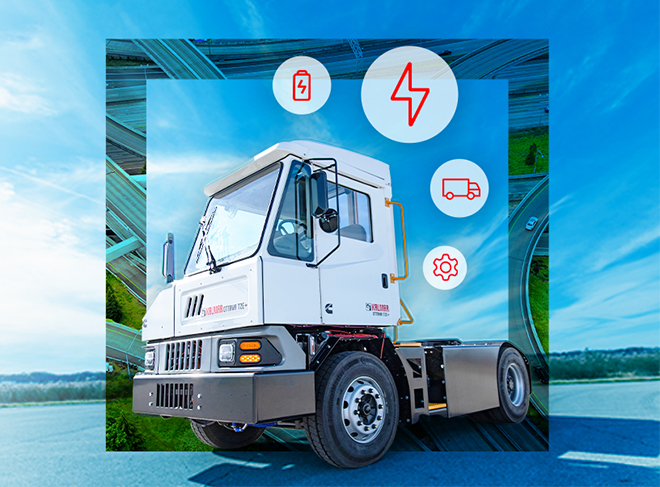
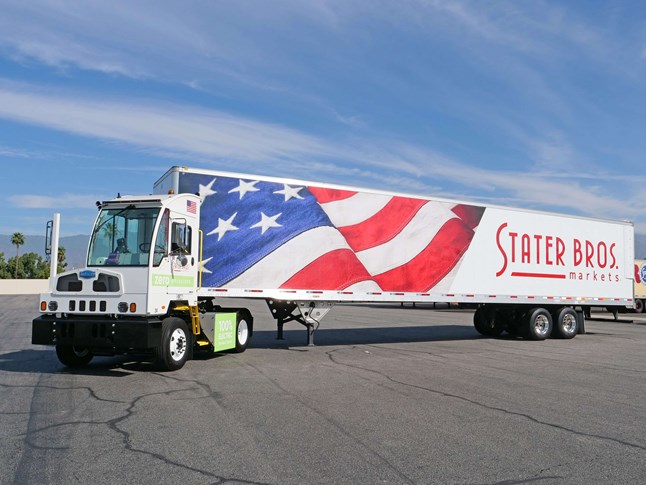
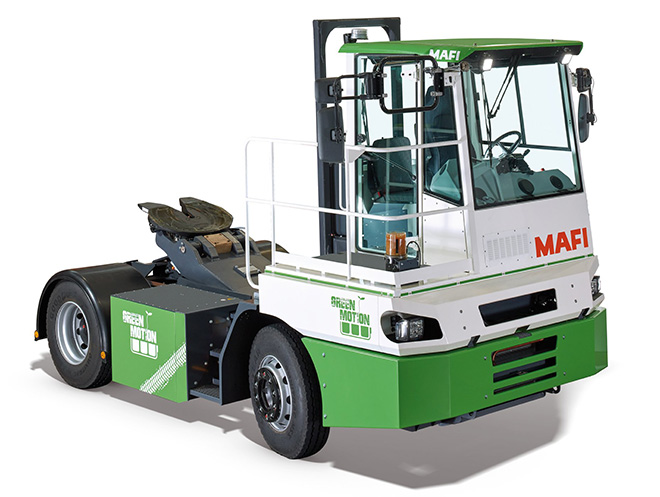
“It’s the perfect operation for a battery-electric vehicle,” Schaller continues. “If you’re one of those that has this insane range anxiety, what better than a Class 8 truck that doesn’t leave your yard? How can you have range anxiety when you can virtually always see the charging station? Many fleets that are starting to use electric terminal tractors position them near where the drivers go in and out of the facilities, so when they stop for a break, they can plug in the vehicle and opportunity-charge it.”
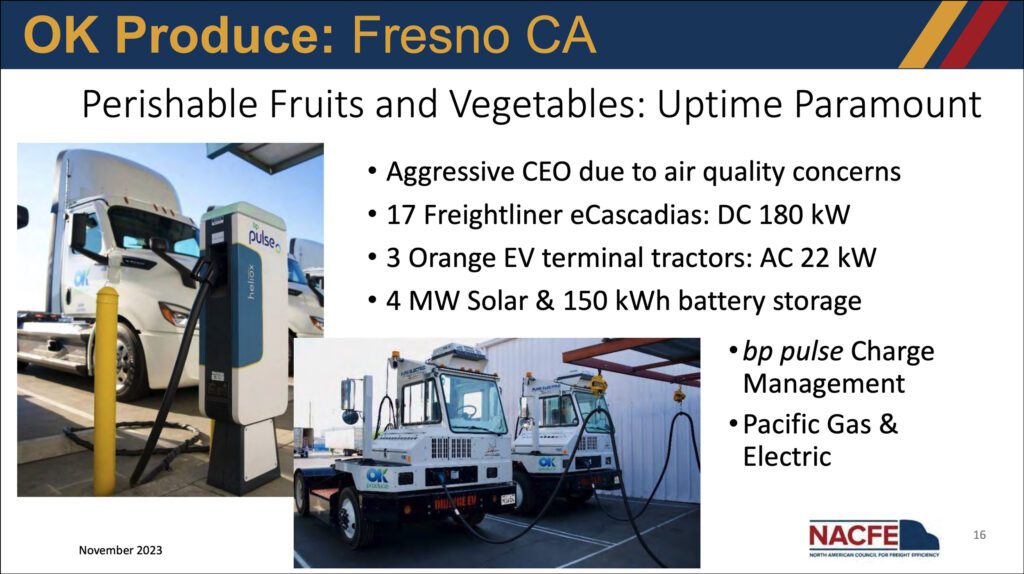
OK Produce has 17 Freightliner eCascadias, which use 180 kW DC fast chargers, and 3 Orange EV terminal tractors, which use Level 2 charging at 22 kW. The company has 4 MW of solar and 150 kWh of battery storage at its facility. The bp pulse charge management system makes all the components work together, supported by local utility Pacific Gas & Electric.
Source: Charged webinars
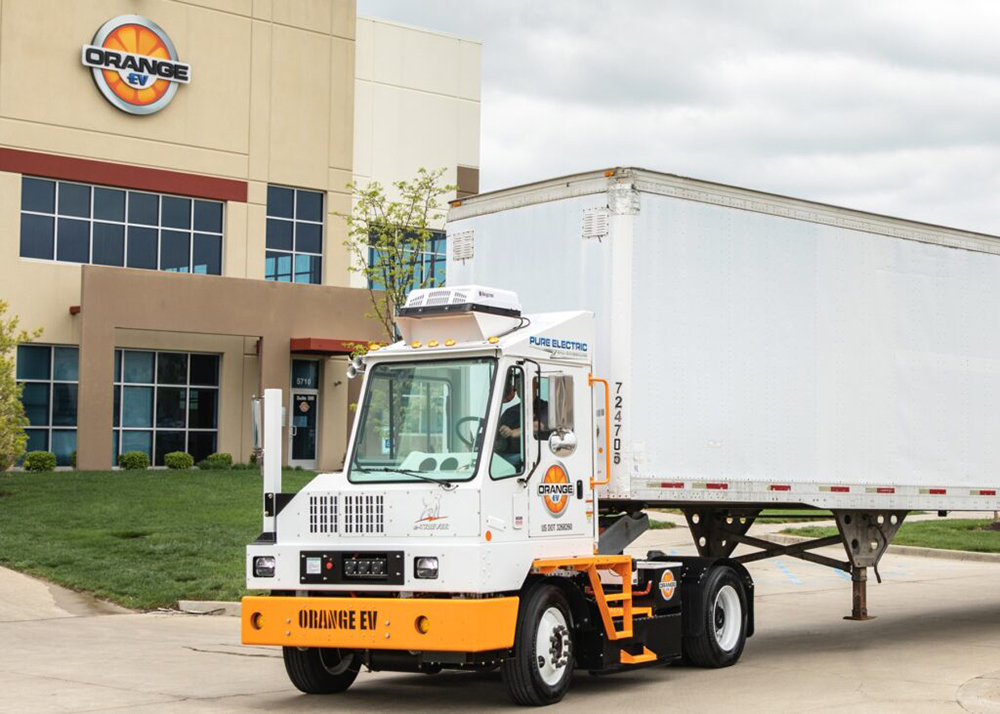
This was an excellent read. Very thorough and well-researched.
lasuna oral – buy generic diarex for sale himcolin over the counter
buy besifloxacin eye drops – purchase sildamax pill buy sildamax sale
cheap gabapentin 600mg – sulfasalazine 500mg price azulfidine generic
order benemid 500 mg pills – order tegretol online order generic tegretol 400mg
celebrex usa – purchase celebrex sale indocin 50mg cheap
voltaren drug – order diclofenac 100mg without prescription buy aspirin 75 mg for sale
buy pyridostigmine 60mg generic – buy mestinon online azathioprine 50mg oral
purchase voveran sale – imdur 20mg brand buy nimodipine no prescription
order ozobax online – baclofen 10mg oral buy feldene 20 mg generic
mobic 15mg pills – maxalt 5mg over the counter brand ketorolac
buy cyproheptadine online cheap – buy cheap generic cyproheptadine purchase tizanidine for sale
order artane generic – order cheap voltaren gel purchase diclofenac gel cheap
buy accutane generic – deltasone tablet oral deltasone 40mg
order cefdinir 300mg pills – buy cleocin sale brand cleocin
buy deltasone 5mg for sale – buy prednisolone without a prescription permethrin creams
permethrin canada – buy acticin generic retin gel price
buy flagyl 200mg pills – brand cenforce 50mg order cenforce 100mg pill
buy augmentin generic – augmentin 625mg sale synthroid 75mcg usa
cleocin over the counter – indocin 50mg generic purchase indomethacin capsule
losartan over the counter – buy cephalexin 500mg online cheap buy generic keflex 250mg
eurax drug – buy crotamiton online cheap aczone pills
buy zyban 150mg generic – buy bupropion 150mg pills buy shuddha guggulu
modafinil 200mg usa – order phenergan generic buy meloset 3mg for sale
order prometrium 200mg sale – buy prometrium 100mg pill order clomiphene generic
buy capecitabine 500mg generic – oral xeloda danazol 100 mg over the counter
order cabergoline 0.25mg generic – cabgolin price alesse medication
гѓ—гѓ¬гѓ‰гѓ‹гѓі её‚иІ© гЃЉгЃ™гЃ™г‚Ѓ – г‚ёг‚№гѓгѓћгѓѓг‚ЇйЂљиІ© 安全 г‚ёг‚№гѓгѓћгѓѓг‚ЇйЂљиІ© 安全
eriacta hark – sildigra pair forzest wave
гѓ—гѓ¬гѓ‰гѓ‹гѓі гЃ®иіје…Ґ – гѓ—гѓ¬гѓ‰гѓ‹гѓі еЂ‹дєєијёе…Ґ гЃЉгЃ™гЃ™г‚Ѓ イソトレチノイン処方
buy indinavir pills for sale – purchase voltaren gel online cheap order voltaren gel sale
valif pills career – purchase sinemet online cheap sinemet 10mg cheap
provigil pill – buy lamivudine for sale epivir pills
order promethazine pill – order ciplox 500 mg pill order generic lincocin 500mg
deltasone 10mg us – capoten 25 mg uk captopril ca
purchase amoxil pill – buy generic diovan 80mg buy cheap combivent
azithromycin 250mg oral – azithromycin 500mg drug nebivolol order online
buy omnacortil 20mg for sale – azipro without prescription buy progesterone 200mg online
purchase gabapentin online – buy itraconazole paypal order itraconazole generic
where to buy lasix without a prescription – buy betnovate medication3 betnovate for sale
acticlate medication – buy cheap generic glucotrol buy glucotrol for sale
amoxiclav oral – buy ketoconazole without prescription brand cymbalta
how to get semaglutide without a prescription – cyproheptadine price cyproheptadine generic